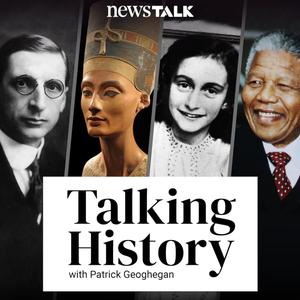
Talking History with Patrick Geoghegan
Newstalk
This unique and lively history show delves into some of the world's most important political, social and cultural events and the intriguing personalities behind them. Presented by Dr Patrick Geoghegan of Trinity College Dublin, Talking History unravels the gritty, sometimes uncomfortable, side of our past, and what we can learn from it.
- 48 minutes 20 secondsBest of December Books
Patrick Geoghegan chats to Prof Diarmaid Ferriter on how Ireland was transformed over the past 25 years, as told in his new book The Revelation of Ireland, 1995-2020; we also hear the untold story of the women on Wall Street and the misogyny they faced, from Paulina Bren's new book She Wolves: The Untold History of Women on Wall Street; and how the IRB changed the course of Irish history, with John O’Beirne Ranelagh.
15 December 2024, 8:00 pm - 52 minutes 27 secondsNotre Dame
As Notre Dame reopens after its catastrophic fire, Patrick Geoghegan looks at the construction and re-construction of one of the most iconic cathedrals in the world. Joining him are: Dr Emily Guerry, Senior Lecturer in Medieval European History at the University of Kent, Dr Caroline Bruzelius, Professor Emerita of Art and Art History at Duke University, Dr Jennifer M. Feltman, Associate Professor of Art History and Medieval Art at the University of Alabama, and Dr Meredith Cohen, Associate Professor of Medieval Art and Architecture at UCLA.
8 December 2024, 8:00 pm - 52 minutes 38 secondsRoman Emperor Septimius Severus
In this episode of Talking History - the story of Caracalla and Geta, the two emperors who share power in the new Gladiator 2 film, how their father Severus transformed Rome, and how their dynasty ended in violence and murder. Patrick Geoghegan is joined by Dr David Woods, Head of the Department of Classics at UCC; Prof Mark Humphries, Professor of Ancient History, Swansea University; and Dr Rebecca Usherwood, Assistant Professor in Late Antique and Early Byzantine Studies at Trinity College Dublin.
1 December 2024, 8:00 pm - 49 minutes 23 secondsOscar Wilde: His Rise And Fall
From Decadence To Despair: in this episode we discuss how Oscar Wilde went from the heights of literary fame to the depths of public scandal, as we debate his remarkable legacy.
Joining Patrick Geoghegan is Caoimhe Ní Ghormáin, Manuscripts Curator, the Library of Trinity College Dublin; Martin Burns, creative director, Oscar Wilde House; and Jarlath Killeen, Head of the School of English at Trinity College Dublin.
24 November 2024, 8:00 pm - 47 minutes 58 secondsThe History of Gladiators
Marking the release of Gladiator 2, in this episode we explore the brutal world of gladiators - and how they rose from captivity to become icons of the Roman Empire.
Featuring: Dr Jerry Toner, Director of Studies in Classics at Churchill College, University of Cambridge, Kathleen M. Coleman, James Loeb Professor of the Classics, Harvard University, and Dr Andrew Fear, Lecturer in Classics, University of Manchester.
17 November 2024, 8:00 pm - 49 minutes 50 secondsThe Fall Of The Berlin Wall
We're marking the 35th anniversary of one of the most seismic events of the 20th century: the fall of the Berlin Wall. We'll find out why it was built, how it fell, and how it brought an end to the Cold War.
Joining Patrick Geoghegan is: Prof Patrick Major, Professor of Modern History at the University of Reading; Katja Hoyer, historian, author of ‘Beyond the Wall: East Germany, 1949-1990', and visiting Research Fellow at King’s College London; and Frederick Taylor, historian, author of ‘The Berlin Wall: A World Divided, 1961-1989' and a fellow of the Royal Historical Society of Great Britain.
10 November 2024, 8:00 pm - 48 minutes 54 secondsBest of November Books
In this episode:
Captive Queen: the Decrypted Story of Mary, Queen of Scots, by Dr Jade Scott
When Courage Calls: Josephine Butler and the Radical Pursuit of Justice for Women, by Dr Sarah C. Williams
and Embers of the Hands: Hidden Histories of the Viking Age, by Dr Eleanor Barraclough
3 November 2024, 8:00 pm - 52 minutes 19 secondsBram Stoker and The Petty Sessions
This special Talking History episode, live from the Supreme Court in Dublin, in conjunction with Dublin City Council Bram Stoker Festival, centres on Bram Stoker and the ‘Petty Sessions: Weird and Wonderful Court Cases from Victorian Ireland’ . Hosted by Tommy Graham, editor of History Ireland.
The Duties of Clerks of Petty Sessions in Ireland was Bram Stoker’s second book of nonfiction. For many years this book was considered to be the standard reference work for petty sessions (local courts dealing with minor criminal and civil cases) clerks in Ireland – the equivalent of today’s District Courts. In this episode, we’ll explore these fascinating tales from the Petty Sessions of the 19th century and how they help us understand the Ireland of Bram Stoker’s time as well as the author himself. With guests Paul Kelly, President of the District Court, Zoe Reid, Keeper at The National Archives of Ireland and Professor Jarlath Killeen, Head of the School of English, Trinity College Dublin.
With thanks to David Slevin, Seafra O’Donovan, Jack Lawlor, Eric Rowntree and Marese O’Sullivan from Newstalk, Tara Brady of the Courts Service; and Joe Murphy, Tom Lawlor, and Maria Schweppe and volunteers from the Bram Stoker Festival.
27 October 2024, 8:00 pm - 53 minutes 27 secondsBest of October Books
In this episode of Talking History, our October books special: when Britain became a republic and why it ended in failure, with Prof Alice Hunt of the University of Southampton; magic and religious controversy in the 16th century, with Dr Violet Moller, author of Inside the Stargazer’s Palace: The Transformation of Science in 16th-Century Northern Europe; and how the CIA became an instrument of a new covert empire, with Prof Hugh Wilford of California State University.
20 October 2024, 7:00 pm - 52 minutes 25 secondsThe History of Modern Sinn Féin
In this episode, Patrick Geoghegan explores the history of modern Sinn Féin, alongside Prof. Agnès Maillot, Head of the School of Applied Language and Intercultural Studies at Dublin City University; Dr Brian Hanley, Teaching Fellow in Twentieth-Century Irish History, Trinity College Dublin; Dr Liam Weeks, Head of the Department of Government and Politics, University College Cork; Dr Matthew Whiting, Senior Lecturer (Associate Professor) in Politics, University of York; and Sinn Féin MEP Lynn Boylan.
13 October 2024, 7:00 pm - 55 minutes 2 secondsThe Most Iconic US Presidential Debates
We're looking at the history of American presidential debates as we explore some of the worst mistakes and iconic quips candidates have made and debate whether they can be the making or the breaking of a future president.
Featuring Dr Daniel Rowe of the University of Oxford, Dr Sandra Scanlon of UCD, Dr Daniel Geary of Trinity College Dublin, and Dr Lewis Defrates of Maynooth University.
6 October 2024, 7:00 pm - More Episodes? Get the App
Your feedback is valuable to us. Should you encounter any bugs, glitches, lack of functionality or other problems, please email us on [email protected] or join Moon.FM Telegram Group where you can talk directly to the dev team who are happy to answer any queries.
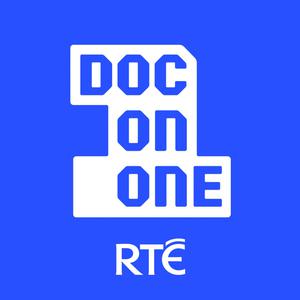 Documentary on One Podcast
Documentary on One Podcast
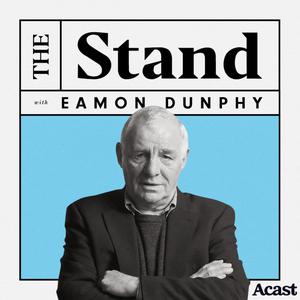 The Stand with Eamon Dunphy
The Stand with Eamon Dunphy
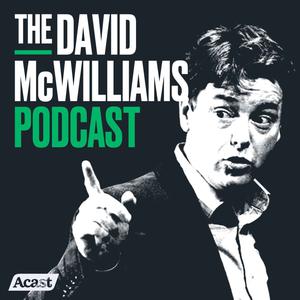 The David McWilliams Podcast
The David McWilliams Podcast
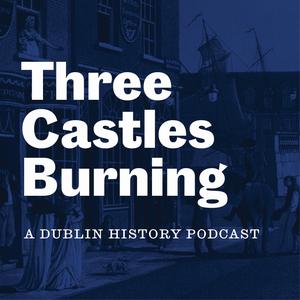 Three Castles Burning
Three Castles Burning
 The Indo Daily
The Indo Daily
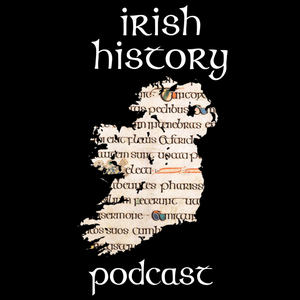 Irish History Podcast
Irish History Podcast